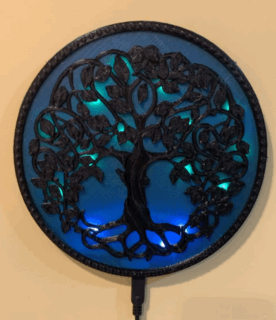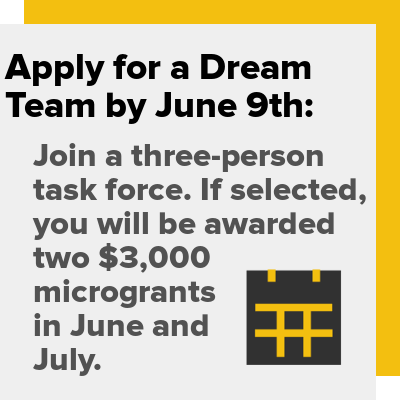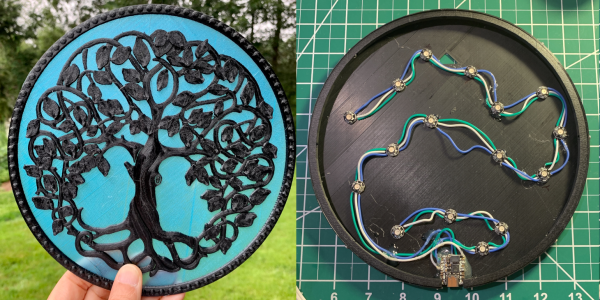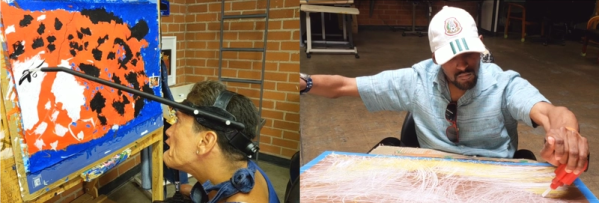Ho-hum — another week, another high-profile bricking. In a move anyone could see coming, Humane has announced that their pricey AI Pin widgets will cease to work in any meaningful way as of noon on February 28. The company made a splash when it launched its wearable assistant in April of 2024, and from an engineering point of view, it was pretty cool. Meant to be worn on one’s shirt, it had a little bit of a Star Trek: The Next Generation comm badge vibe as the primary UI was accessed through tapping the front of the thing. It also had a display that projected information onto your hand, plus the usual array of sensors and cameras which no doubt provided a rich stream of user data. Somehow, though, Humane wasn’t able to make the numbers work out, and as a result they’ll be shutting down their servers at the end of the month, with refunds offered only to users who bought their AI Pins in the last 90 days.
dementia5 Articles
Tree Of Life Branches Out With A Twist
In the middle of 2020, [charlie] challenged himself to conceive of and finish one project every month for the next twelve. Here we are a year later with [charlie]’s last project of the challenge: a tree of life with a bit of a twist to it.
 The idea was to build a tree with lights that would represent the leaves and change as the tree went through the seasons. After a lot of searching, he found a really elaborate model meant for CNC carving, but the model maker converted it to an STL. [charlie]’s original plan was to poke the LEDs through the print. After consulting a wise woman, he decided to take the two-color approach and make the background translucent so that the 16 RGB LEDs can shine through.
The idea was to build a tree with lights that would represent the leaves and change as the tree went through the seasons. After a lot of searching, he found a really elaborate model meant for CNC carving, but the model maker converted it to an STL. [charlie]’s original plan was to poke the LEDs through the print. After consulting a wise woman, he decided to take the two-color approach and make the background translucent so that the 16 RGB LEDs can shine through.
So, what’s the twist? Well, over time, the tree will develop dementia. One by one, the leaves will lose awareness and go through the seasons backward, or slow down their cycle, or speed up. Eventually, the entire tree recedes into a rainbow of confusion. Sadly beautiful, isn’t it?
No printer? No problem. Trees of life come in all forms, including free-form.
Hackaday Prize And UCPLA Are Driving Assistive Technology Forward
Take a second to imagine all the people in your life. Your family, friends, coworkers. Your buddies down at the hackerspace, and anyone you chat with on IO and over the airwaves. Statistically speaking, one in four of these people has a disability of some kind, and needs help doing everyday things that you might not think twice about — simple things like opening doors or interacting with computers. Or maybe that one in four is you.
For the past 75 years, United Cerebral Palsy of LA (UCPLA) have been helping people with various developmental and intellectual disabilities to live independently with dignity. They work directly with members of the disabled community to develop assistive technology that is both affordable and dependable. UCPLA helps the disabled community with everything from employment to providing a creative outlet, and gives them the tools to do these things and more. Their mission is to help people be as independent as possible so they can feel good about themselves and enjoy a life without limits.
 The people behind this non-profit are all about inclusion, access, and opportunity, and this is why we are proud to partner with UCPLA for the 2020 Hackaday Prize. With the world in upheaval, there is no better time to build a better future for everyone. You never know when you might need assistive technology. In addition to the open challenge that calls for everyone to work on a design, this year there is also a Dream Team challenge which offers a $3,000 per month stipend over the next two months to work on a team addressing one specific challenge. Apply for that asap!
The people behind this non-profit are all about inclusion, access, and opportunity, and this is why we are proud to partner with UCPLA for the 2020 Hackaday Prize. With the world in upheaval, there is no better time to build a better future for everyone. You never know when you might need assistive technology. In addition to the open challenge that calls for everyone to work on a design, this year there is also a Dream Team challenge which offers a $3,000 per month stipend over the next two months to work on a team addressing one specific challenge. Apply for that asap!
What kind of challenges has UCPLA outlined for the Hackaday Prize? Let’s dive in and find out, and we’ll also hear from the UCPLA team in a Q&A video at the end of the article.
Continue reading “Hackaday Prize And UCPLA Are Driving Assistive Technology Forward”
Hackaday Prize Entry: Dementia-Friendly Music Player
The loss of memory is an extremely difficult situation, not just for those afflicted, but also for immediate family, close friends, and care givers. With no cure available for dementia, providing care is an extremely demanding task for everyone involved – both mentally and physically. Patients are unable to retain recent events and information, but will most likely be able to recall some amount of past memories. This presents serious challenges when they encounter “modern” technology and cannot figure out how to use and operate everyday devices that normal people take for granted.
[rosswesleyporter]’s Dad had trouble using modern iPods and CD players, so he built DQMusicBox — a Dementia friendly music player. It’s very simple interface resembling a radio from half a century ago. There are just two large, clearly marked rotary dials — one for Volume, the other for Songs, and a headphone socket. The inspiration came from a very moving documentary called “Alive Inside” which explores how music brings extreme joy to people with dementia.
The device is built around a Raspberry Pi, enclosed in a laser cut enclosure and requires no soldering — making it easy for anyone to build one for themselves using easily available parts. The Raspberry Pi runs on a lightweight, optimized version of Raspbian called DietPi. The music playback is handled by VLC ensuring support for a large number of music formats. A Python script looks for music files, sets up the VLC-NOX player and handles knob and button events. A bundled image file for the software includes everything needed to get it running, making setup easy and quick. Since Raspberry Pi’s are prone to OS corruption when power is disconnected without performing a proper shutdown, [Ross] uses write protection on the SD-card and walks you through the process of how it works.
Between his Project page, Github and DQMusicBox website, you will be able to get all the information needed to replicate this excellent project. And for his next version, he already has a few ideas for improvement and would like to hear if other hackers have suggestions.
Continue reading “Hackaday Prize Entry: Dementia-Friendly Music Player”
Being A Friend To Man’s Best Friend
When [Jason Dorie] tipped us off on this, he said, “This barely qualifies as a hack.” We disagree, as would any other dog lover who sees how it improved the life of his dog with a simple mood-altering doggie-bed carousel.
[Jason]’s hack lies not so much in the rotating dog bed – it’s just a plywood platform on a bearing powered by a couple of Arlo robot wheels. The hack is more in figuring out what the dog needs. You see, [Thurber] is an old dog, and like many best friends who live a long life, he started showing behavioral changes, including endlessly pacing out the same circular path to the point of exhaustion. Circling in old dogs is often a symptom of canine cognitive dysfunction, which is basically the dog version of Alzheimer’s. Reasoning that the spinning itself was soothing, [Jason] manually turned [Thurber]’s dog bed on the floor. [Thurber] calmed down immediately, so the bittersweetly named “Dementia-Go-Round” was built.
Sadly, [Thurber] was actually suffering from a brain tumor, but he still really enjoyed the spinning and it gave him some peace during his last few days. Looking for hacks to help with human dementia? We’ve had plenty of those before too.















